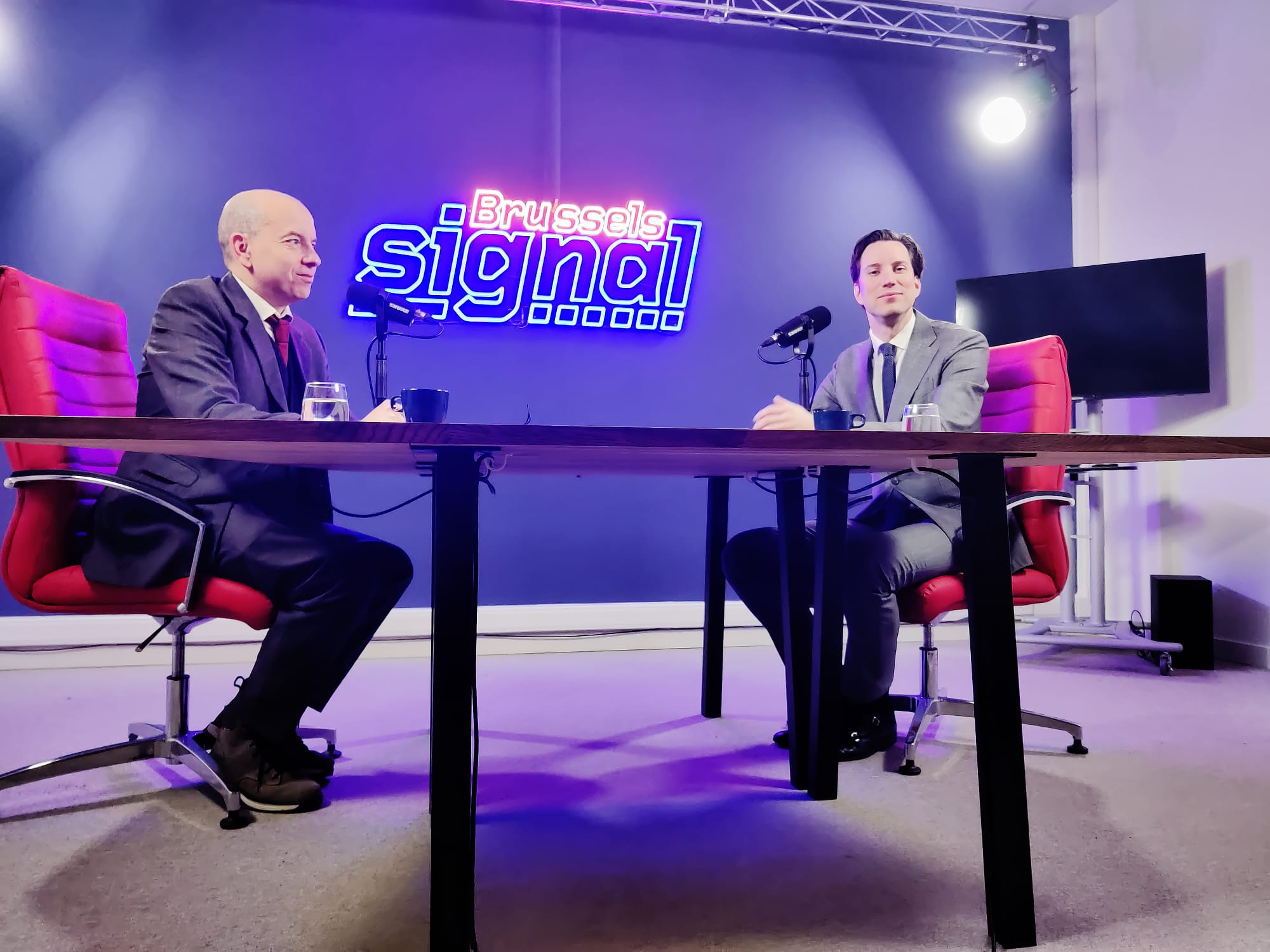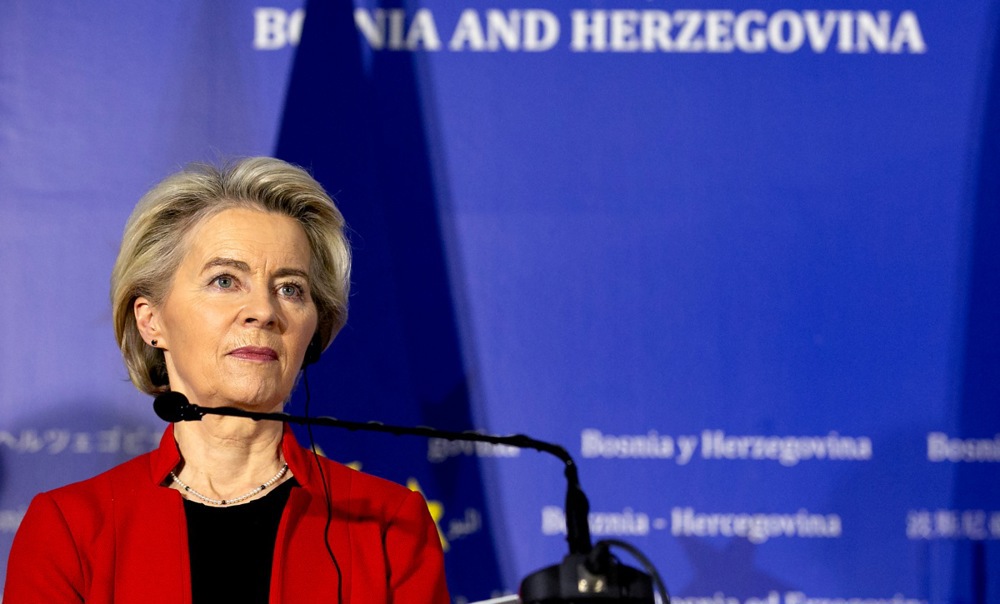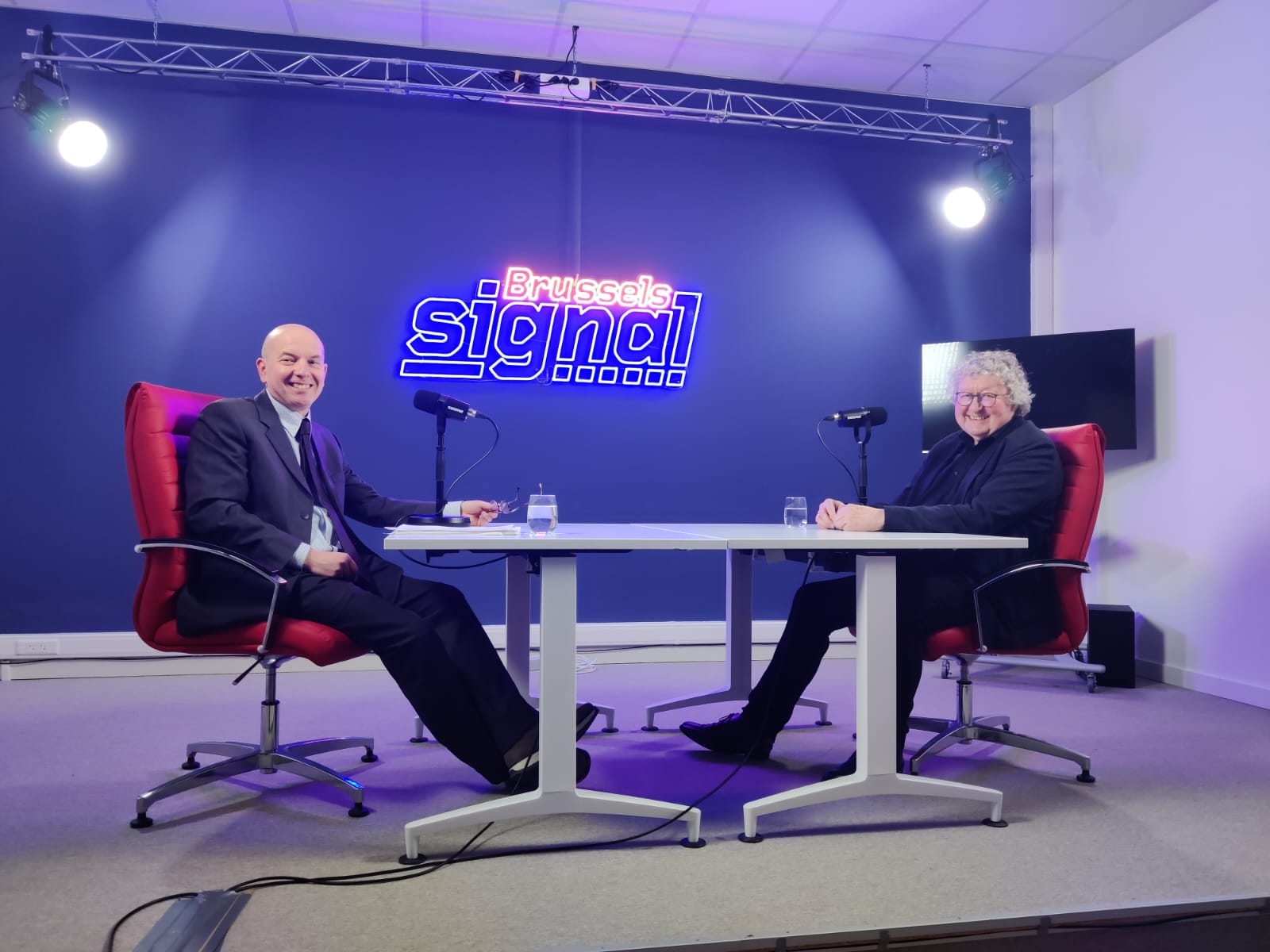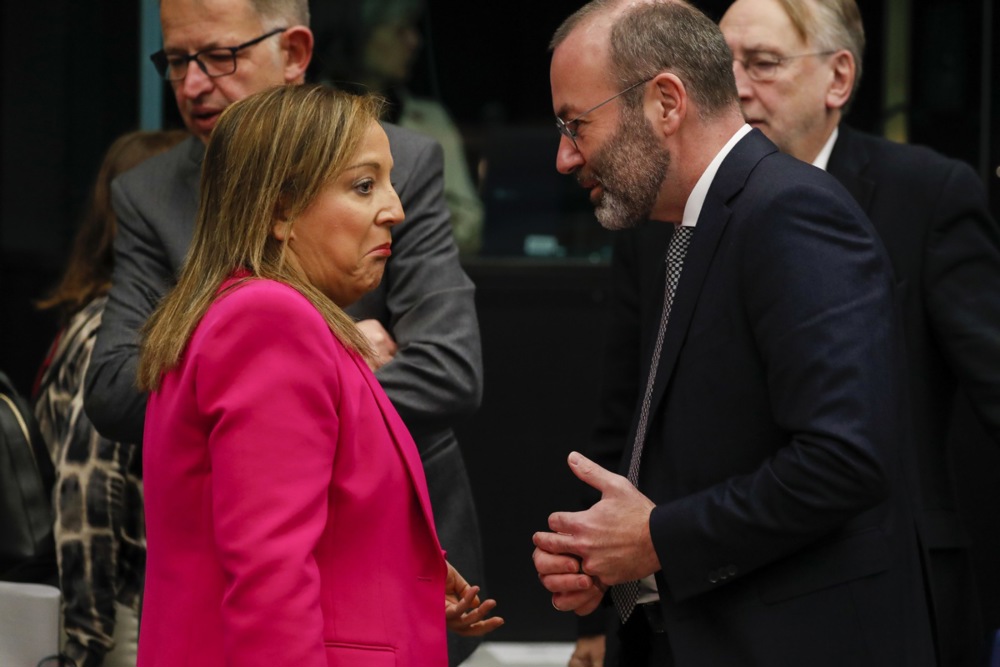Journalists covering the EU were left groaning at a major Brussels press conference on February 21, when one of their colleagues asked to put a question in German.
The incident occurred at a strictly curated European People’s Party event, formally kicking off Ursula von der Leyen’s campaign to be reappointed European Commission president in the next legislative term.
Addressing the European Commission president during a seemingly pre-arranged Q&A session, a journalist from German outlet Table Media asked to put her question to von der Leyen and her EPP colleague, Manfred Weber MEP, in German.
Despite both politicians being German themselves, the request prompted uproar from the crowd, which let out a collective groan at the request. At least one individual booed.
Von der Leyen and Weber quickly acted to placate the gathered journalists by promising to answer the question in English regardless of the language it was asked in.
This appeared to be an attempt to accommodate the journalist, who was clearly not a native English speaker.
“I will answer the question in English anyhow,” said Von der Leyen said, with Weber also committing to answering the question in English.
Despite attempts at a compromise, the German journalist decided to translate her question into English, though not without difficulty.
This was not the only incident of linguistic controversy at the event. The moderator upbraided a second journalist–a French speaker–for attempting to ask her question in French.
“[She] promised me that she would ask the questions in English,” the moderator said in what appeared to be an attempt to reassure the crowd.
Parties belonging to the European Parliament’s European Conservatives and Reformists (ECR) group could end up defecting to the European People’s Party (EPP), European Commission president and senior EPP politician Ursula von der Leyen has hinted. https://t.co/OEj03eCr7C
— Brussels Signal (@brusselssignal) February 21, 2024
The furore over EU journalists wanting to ask questions in their native tongues rather than in English came even as the press conference focussed largely on European sovereignty.
Speaking at the event’s start, von der Leyen emphasised the importance of protecting “what makes Europe unique and strong” in an increasingly unstable world.
“When I ran in 2019, I did it because I deeply believed in Europe,” she said.
“And these past five years not only taught me a lot about my passion for the European Union, but what I also learned is how much this Europe can deliver to its people,” added von der Leyen.
Language politics were far from the only thing that made Wednesday’s press event appear odd to many who attended.
While elements of the conference appeared carefully scripted — including which questions were put to von der Leyen and Weber — the event ultimately felt haphazard to many of the participating reporters.
Starting substantially later than planned, journalists were puzzled why the event was not held in a conference room, but rather at the side of a small hallway.
Its size was barely big enough to accommodate the approximately 50 reporters in attendance.
Equally haphazard was the event’s recording set up, with video and audio equipment strewn loosely in front of the event stage.
Von der Leyen was interrupted mid-sentence when one reporter knocked over a piece of audio equipment, after accidentally tripping over a wire.
This reporter in question was Brussels Signal‘s Peter Caddle, who apologised profusely to the audio staff afterwards.
Officially, the European Commission has three working languages: English, French and German. All EU institutions have the ability to work in any of the EU’s official languages, though in practice the vast majority of work – and in particular meetings with industry – takes place in English.
Use of English has all but eclipsed French, which was widely used in public though began to fade after EU enlargement to countries in central and eastern Europe in 2004.
The lack of Irish-language moderation regarding European social media constitutes a security “vulnerability”, the bloc’s self-appointed “digital enforcer” Thierry Breton warned. https://t.co/k1tYgAkDUZ
— Brussels Signal (@brusselssignal) January 31, 2024





